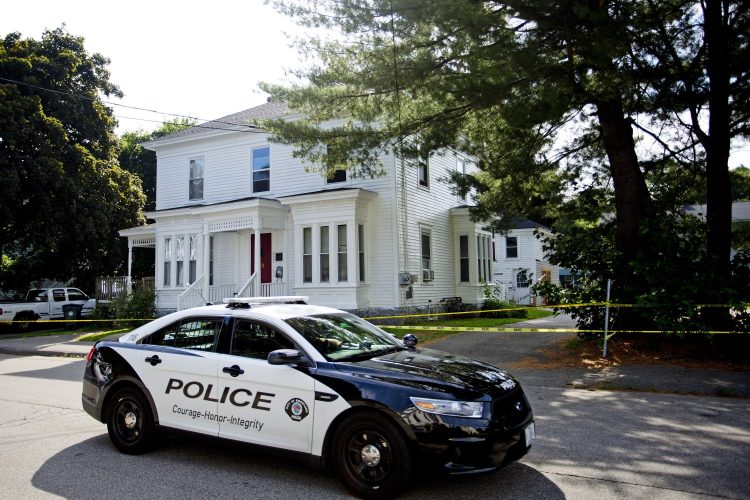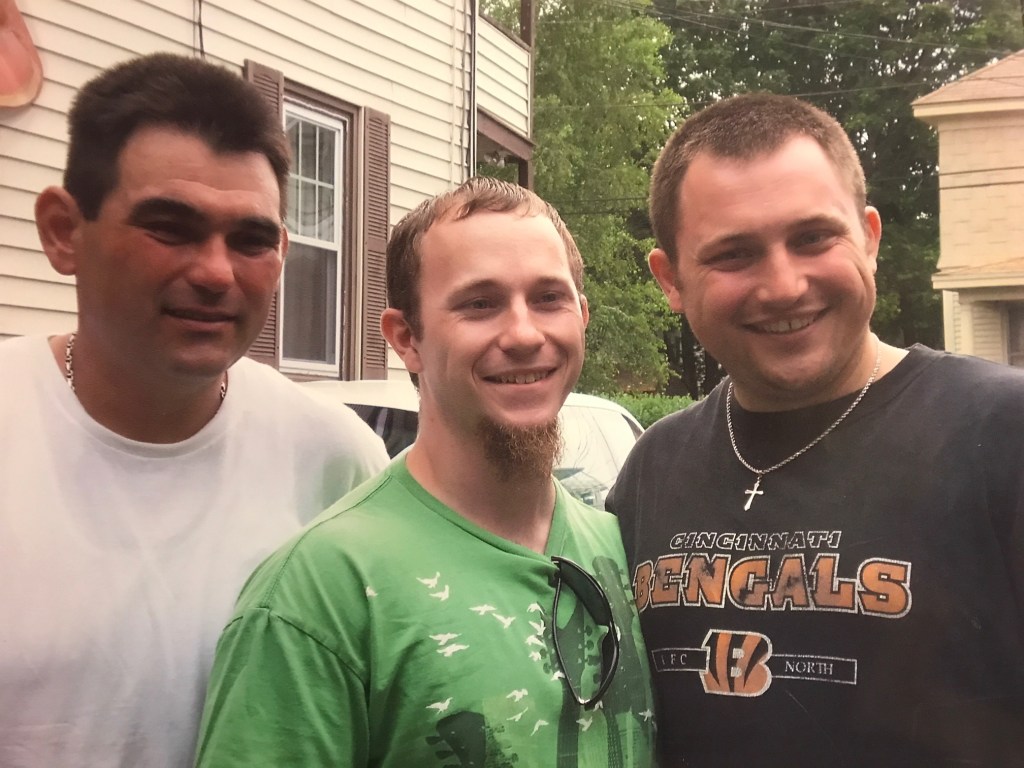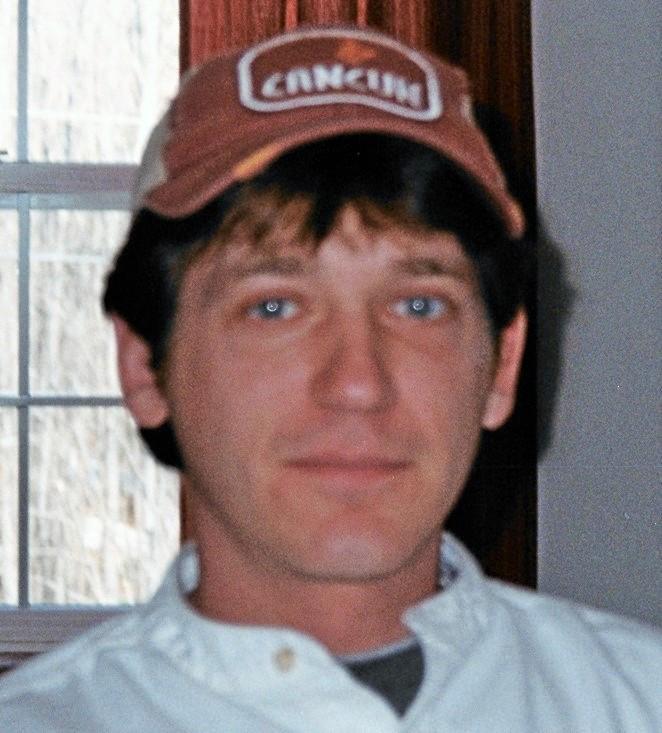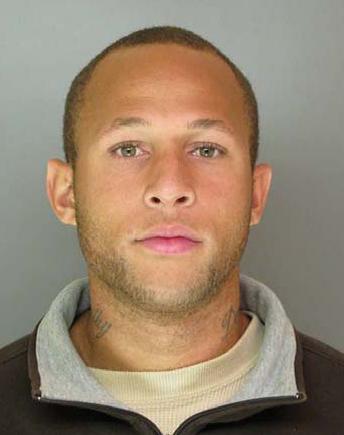ALFRED — A New York City man will spend at least 10 years in prison for his role in the 2014 shooting deaths of two men who confronted and attacked him in an attempted drug robbery in Biddeford.
The sentencing of Fuquan Prince Wilson of the Bronx, who pleaded guilty in March to two counts of manslaughter for causing the deaths of Russell C. Lavoie, 42, and Jeffrey Lude, 37, came after a full day of arguments in which Wilson’s attorney tried to have the case dismissed based on allegations of misconduct by the prosecutors.
But Superior Court Justice John H. O’Neil rejected those claims after several hours of oral arguments, and also rejected a last-minute attempt for Wilson to withdraw his guilty plea and pull out of a plea deal that capped his immediate unsuspended sentence at 10 years.
For the families of the two men, the flurry of motions and arguments was an unexpected turn in a case that took nearly three years to resolve.
“At the beginning of the day it was really rough for all of us,” said Deborah Miller, LaVoie’s older sister, after the sentence was handed down. “We thought (Wilson) was just changing his plea, and then we’re told he wanted to dismiss the whole thing. So we’re all very emotional and, like oh my God, what are we going to do, we’re never going to have this over.”
Members of both the Lavoie and Lude families asked O’Neil to impose the maximum sentence and described how they will live with the pain of their losses long after Wilson is released from prison.
“(Wilson) ripped my heart out. I’ve been fighting with this ever since it happened,” said Rachel Renadette, Lude’s mother. “The only thing that I ask is he do the max. He has to do the max. He gets to see his kids, if he has kids, or his mother.”
The allegations of official misconduct, which were revealed in a series of contentious motion arguments and court documents, center on the Maine State Police detective who investigated the case but who was removed after he raised ethical issues with how the Maine Attorney General’s Office handled the investigation.
The detective, Scott Harakles, alleged that the Attorney General’s Office instructed him to withhold information from a police report about a key witness because the information was unfavorable to the state.
Assistant Attorney General Meg Elam squarely rejected those claims, and called Harakles a “rogue” detective during arguments. After the proceeding, Elam said she would refuse to work with Harakles in the future, and that all of the information Wilson’s attorney used to make the claims of impropriety were provided by the state, undercutting the assertion that the information was hidden from the defense.
“We’re gratified that the court rejected the scandalous claims that were made by the defendant that any evidence was withheld or altered by the state,” Elam said. “That never occurred.”
She added: “I’m sad for the family of the two men killed here that they were essentially abandoned by the person who was supposed to be representing the state in this case.”
Wilson’s attorney, David Bobrow, said his client is considering all of his options going forward, including appeal, but Wilson is still concerned that even if O’Neil’s decision is reversed, he still could not receive a fair trial.
“The lead investigator for the state was removed from the case because of his concerns with the integrity of the process and the changing of evidence against Mr. Wilson,” Bobrow wrote in a brief statement. “It’s unfortunate and concerning that the trial court did not care.”
According to court papers filed last week and arguments made in court, Bobrow’s accusations of misconduct focused on an interview with a witness, Haley Barrett, that was conducted by Harakles, the lead investigator.
Also present at the interview was Assistant Attorney General John Alsop. The interview was not recorded, and was meant to prepare Barrett to testify at trial, according to the state.
Barrett was the first person to speak to Wilson after the shooting. According to Bobrow, Barrett described a statement Wilson made soon after the shooting, that if he did not react as he had, everyone was going to die.
Bobrow said in court that Alsop then told Harakles, “That does not help us. Do not file a report.”
Harakles filed the report anyway, according to Bobrow, but someone changed the report to alter what Barrett said to “everyone dies sometimes.”
Bobrow also alleges that someone removed a notation indicating the document was in its third revision.
“The only means of that being removed would have been if a person other than Detective Harakles accessed the computerized report and deleted it,” Bobrow said in his filing.
The Attorney General’s Office later said the report had not been altered.
Soon after the dispute about the interview and the report, Harakles was removed from the case, Bobrow wrote.
In an email to a private investigator for the defense, Harakles discussed his removal, saying, “Yesterday I took a very strong stand for the truth and what is just,” according to court records. “Today they removed me from the case.”
Harakles has since hired an attorney and is pursuing legal action, according to a filing by Bobrow.
According to court records, Wilson was using a Biddeford man’s home to sell drugs. LaVoie and Lude entered the home one night in July 2014, armed with a mallet and what witnesses believed was a semi-automatic pistol. The gun was later determined to be an airsoft BB gun.
While one man pointed the airsoft gun at other people in the home, the other attacked Wilson with the mallet, injuring him, according to court records. The men fled, and according to the state, Wilson chased them and fired 14 rounds at them as they ran.
Wilson then fled the state and was later apprehended in New York City.
During the plea hearing, Bobrow acknowledged that a jury may have found his client guilty of manslaughter based on imperfect self-defense, meaning that, in the moment, Wilson had an honest but unreasonable belief that he was justified in using deadly force.
Matt Byrne can be contacted at 791-6303 or at:
Send questions/comments to the editors.






